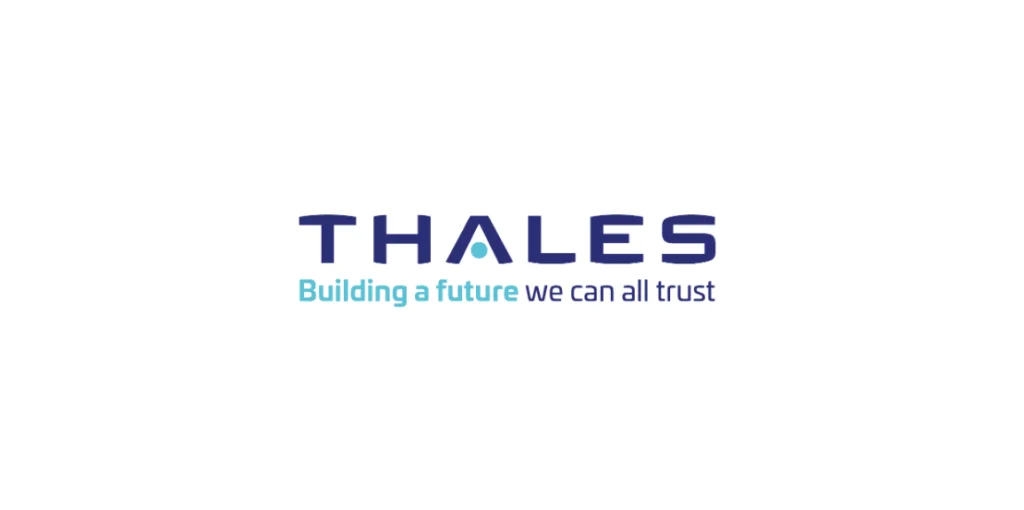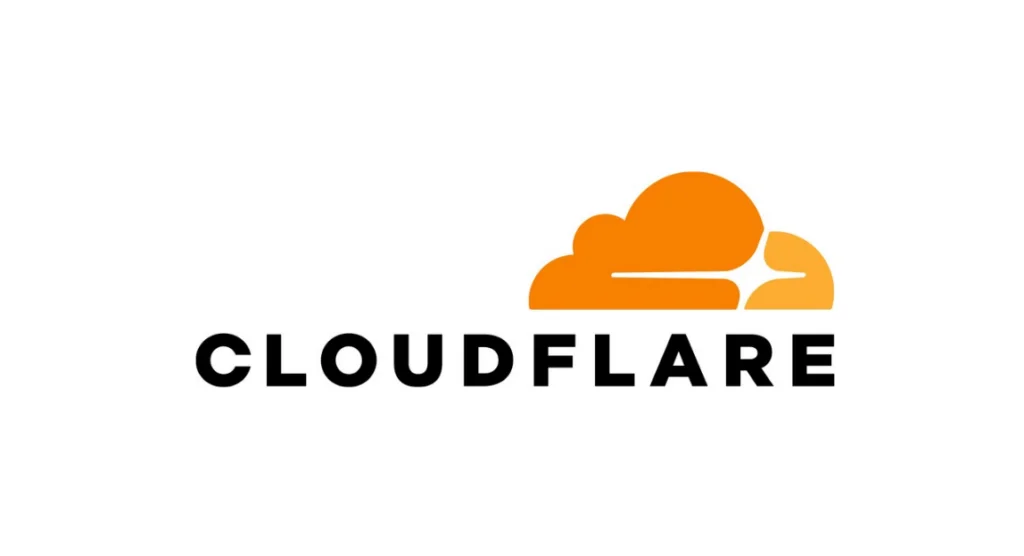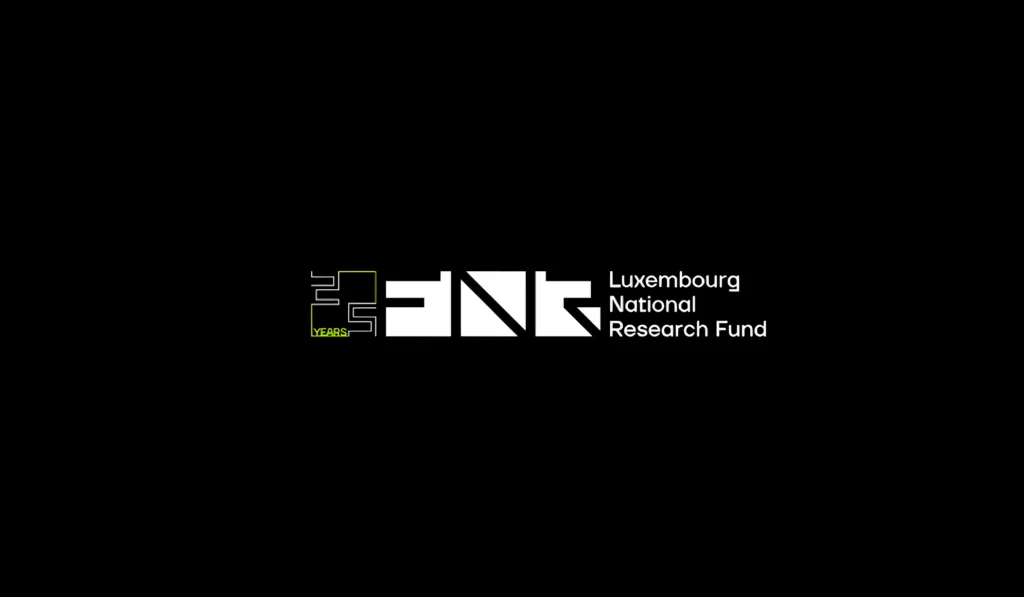We’re nowhere near where we need to be in quantum computing hardware for us to create viable use cases. Quantum computing hardware companies nowadays are pushing towards that goal at unpredictable speed.
Think back for a moment— to the late 1950s, or early 1960s, when vacuum tubes gave way to your more solid-state devices like transistors. Eventually, transistors brought about integrated circuits and the magic of the microprocessors, which helped spawn the PC.
Hardware still has a long way to go in the industry, but what I have tried to achieve in this list of thirty-one quantum computing hardware companies is that you don’t need the megabucks of the multinationals to come up with magic.
This is what this article is about. The ones that take the real risk of building their hardware. Some on the list are startups with little or no funding; others have years — sometimes decades — of experience in the industry with a healthy revenue stream or fancy VC backers but still yet to go public.

Quantum Computing Hardware Companies
 Photo by Nadine Shaabana on Unsplash
Photo by Nadine Shaabana on Unsplash
You see, it’s a mixed bag. The way we like it at TQD. We know Google, Honeywell or IBM are going to be there or thereabouts when quantum advantage, supremacy or whatever the f**k you wanna call it happens, but we want to be fair to the underdogs, give them a chance, see how they fare in the Great Hardware Race For QC.
Oh, and one more thing, the list is not meritocratic, it’s alphabetical, which I guess could be a good thing until you come to the ‘Qs’.
If you want to learn more, we’ve compiled the most comprehensive list of the top quantum computing companies available!
1. AegiQ
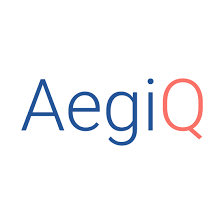
AegiQ, based in the north of England, is a spin-off from the University of Sheffield and currently in the process of building a ‘high-performance quantum photonic system with on-demand single photons’. Founded by Max Sich, Scott Dufferwiel, Maurice Skolnick, and Jon Heffernan in 2019, the startup’s aim is its high-performance technology utilizing properties of light that can have success in such fields as imaging, microscopy and broadband quantum communication.
Covered in a story by TQD a few months ago, AegiQ recently joined the European Photonics Industry Consortium (EPIC), another sign of its intent to make a mark in the QC industry.
Visit company’s profile page.
2. Alice&Bob
One of the new kids on the block, French startup Alice&Bob (yes, that the name of the startup, a homage to the placeholder names used in a thought experiment in cryptography) was founded in 2019 and builds ‘universal, error-free’ quantum computers to solve the hardest problems facing humanity. With a prototype already in place, the spin-off from the ENS Paris and ENS de Lyon has already raised $3.3M in a Seed round in May of this year. With the war chest full, founders Théau Peronnin and Raphaël Lescanne have no need to worry for some time to come on financial matters. Utilizing research conducted across a consortium of universities and research institutes, the startup’s support base is strong.
Get ready to hear more about these guys in the near future as one of the leading quantum computing hardware companies.
Visit company’s profile page.
3. Alpine Quantum Technologies
Alpine Quantum Technologies (AQT), founded in Austria in 2018 by Rainer Blatt, Thomas Monz and Peter Zoller, is one of the startups using trapped ion technology to build ‘general-purpose quantum information processors’. AQT’s long-term goal, then, is in the commercialization of a quantum computer that can be useful in an industrial context.
To date, AQT has received three grants to the value of just over $34M. The generous donations have come from the likes of the Austrian government and the University of Innsbruck.
With a more than healthy bank balance, an astute founding team and plenty of ideas, AQT’s destiny lies firmly in its own hands.
Visit company’s profile page.
4. Archer Materials

Founded in Adelaide, Australia, in 2007, Archer Materials is on the cutting edge in the development and manufacturing of materials that can be used in quantum technology.
As one of the more established quantum computing hardware companies the materials they are building incorporate carbon-based qubits, graphene-enhanced biosensors and graphitic battery anodes, as well as others.
Cofounded by Greg English who acts as chairman of the board but run by CEO Mohammad Choucair, Archer Materials has pivoted from its original business model in minerals exploration to its current focus in materials technology.
Listed on The Australian Securities Exchange (ASX) since the year of its inception, Archer’s ‘diverse advanced materials inventory, strong intellectual property, world-class expertise, and access to over $300 million of R&D infrastructure’ will surely help them as they navigate the world of QC.
Visit company’s profile page.
5. Aurora Quantum Technologies

The next startup on our list is Aurora Quantum Technologies. Cofounded by Jennifer Shelton, Raina J. Olsen and Mohammadreza Rezaee in 2017 at the University of Toronto’s Creative Destruction Lab, the QC startup manufactures ‘standardized, modular quantum components’. These components are, with the help of ML, designed to integrate with quantum processors and have been built to be scalable and operate in a wide selection of quantum processor technologies available.
‘Building the Next Generation of Truly Remarkable Quantum Computers.’
— Aurora Quantum Technologies
As far as investment goes, they received the tidy sum of $150,000 in a Seed round in early 2019 from Y Combinator, the American seed money startup accelerator.
Visit company’s profile page.
6. Bleximo

Alexei Marchenkov and Richard Maydra are the cofounders of Bleximo, a Berkeley, California-based startup set up in 2017 that specializes in ‘quantum accelerators’. These accelerators ‘leverage the laws of quantum physics and are designed for particular problems in specific industries’. Eventually, Marchenkov and Maydra — who incidentally worked together at Rigetti Computing before they founded Bleximo — hope their accelerators will be able to simulate the structure and properties of molecules and chemical reactions, which can then assist the pharmaceutical industry in such problems as drug discovery and design.
In a Seed round, led by Eniac Ventures and four others from 2018, Bleximo received $1.5M in funding. With this healthy cash injection, as well as Marchenkov’s and Maydra’s experience that stretches back decades in academia and industry, it is patently obvious the startup is in a good position to make its mark at some point in the QC space.
Visit company’s profile page.
7. Bluefors
Finnish concern Bluefors (formerly BlueFors Cryogenics), founded in 2007 as a spin-off from the Low Temperature Laboratory (LTL) at Aalto University (at the time called the Helsinki University of Technology), designs and manufactures ‘cryogen-free, ultra-low temperature dilution refrigerator systems’.
Cofounders of this quantum computing hardware company Pieter Vorselman and Rob Blaauwgeer’s aim is to use their systems in state-of-the-art technologies such as nano-technology and QC. With forty years’ experience in ‘ultra-low temperature physics and engineering’ between them, the Helsinki-based pair — along with their large team of cryogenic and R&D engineers, micromechanics, HR specialists, and dedicated salespeople — is dedicated to serving a growing customer base. With more than 350 systems already installed globally, Bluefors is already a ‘leading supplier of cryogen-free dilution refrigerator systems’.
With a revenue stream already in place but with no information on VC funding available, Vorselman and Blaauwgeer seem to have a good thing going.
Visit company’s profile page.
8. BraneCell Systems

BraneCell Systems, the startup that calls itself the rather verbose ‘decentralized ambient temperature quantum computer company’, was founded in Littleton, Massachusetts in 2015 by Christopher Papile, who acts as CEO.
“Classical-to-Quantum™”
— BraneCell Systems
With a goal of migrating problems that hound classical IT systems to ones that employ quantum solutions using quantum software and quantum cloud computing tools, Papile and his team include scientists and engineers with years of experience.
Papile himself, with a Ph.D. in chemical engineering from the University of Delaware, has decades of industry experience working for the likes of management consulting firm Arthur D. Little as director of chemical engineering and others in influential managerial positions.
The startup’s financial position is solid, too: with $1.8M raised in capital so far in an unknown Venture round.
Visit company’s profile page.
9. ColdQuanta

ColdQuanta, a market leader in the commercialization quantum atomics, is based in Boulder, Colorado. In business since 2007, its Quantum Core™ technology builds ‘components, instruments, and turnkey systems that address a broad spectrum of applications ranging from timekeeping and navigation to quantum computing, and from radiofrequency (RF) receivers to quantum communications systems’.
The founder of this quantum computing hardware company was Rainer Kunz, and CEO until his retirement in 2015. The company is now run by current CEO Bo Ewald, who took over from Dana Anderson in 2019. Anderson, a Fellow of JILA, a joint institute between the University of Colorado and the National Institute for Standards and Technology, is also Director of the Optical Science and Engineering Program at the University of Colorado.
With a solid customer base that is spread out globally, ColdQuanta can boast happy clients from all branches of the U.S. Department of Defense, national labs operated by the Department of Energy, NASA, and NIST, as well as major universities. Not satisfied with being in one place, ColdQuanta also has operational offices in Wisconsin and Oxford, UK.
With close to $20M raised from two Seed funding rounds and a grant over the last few years, ColdQuanta looks set to provide governmental institutions and universities with its innovative Quantum Core™ technology that ‘uses ultra-cold atoms cooled to a temperature of nearly absolute zero using lasers to manipulate and control the atoms with extreme precision’.
10. Delft Circuits

Delft Circuits is one of a growing number of QC startups that have appeared in the Netherlands of late. The country now somewhat of a quantum hub, Delft Circuits was founded in the city of Delft in Zuid-Holland in 2016 by Sal Bosman, Paulianne Bosman Brouwer and Daan Kuitenbrouwer.
According to the startup’s website, they
design and fabricate custom-engineered (superconducting) quantum circuits and cryogenic instrumentation
Delft Circuits product line includes the Cri/oFlex®, which is a monolithic microwave cryogenic cabling solution. The product comes in three ranges:
The Cri/oFlex® 1, which offers cryogenic flexibility, the Cri/oFlex® 2, the new cryogenic microwave standard and the massively scalable cryogenic i/o Cri/oFlex® 3.
The team obviously sees specialist wiring and instrumentation for quantum computers as a niche market for the future of quantum computing hardware companies.
But what about investment in the startup?
To date, this quantum computing hardware company hasn’t managed to secure funding, but that’s not because of a lack of suitors. Far from it, in fact. Delft Circuits has decided — at least for the time being — to remain independent financially as they see VCs as being too exploitive and not aligned to their own goals.
Visit company’s profile page.
11. EeroQ
Founded in 2017, EeroQ is a quantum hardware startup whose focus is to build a quantum computer powered by electrons on helium. Its four founders, Johannes Pollanen, Faye Wattleton, Nick Farina, and David Rees, believe their quantum chip based on the team’s unique technology can ‘have potential advantages over other qubit technologies’.
“If we are trying to build a startup, we have to recognize that we have limited time, limited resources, and, most importantly, we have specific expertise, so let’s stick to what we’re good at. So, as a result, we are one of the only hardware companies that is proudly not full-stack at all. We only work on hardware.”
The startup has offices in New York City and East Lansing, Michigan.
EeroQ is currently relying on funding from family offices and angel investors. Cofounder Professor Johannes Pollanen’s fundamental research on electrons on helium at Michigan State University is funded by the NSF.
Visit company’s profile page.
12. High Precision Devices
This quantum computing hardware company was founded way back in 1994 in Boulder, Colorado, High Precision Devices (HDP). It manufactures precision cryogenic instruments. Its founder, Bill Hollander — a former instrument specialist at JILA — had a simple idea: to provide ‘exceptional quality instrument development and manufacturing services to universities, government labs and private companies’.
And the company has consistently done that.
HDP solves difficult problems with several different technological approaches. These include:
— Cryogenics
— Optics
— Vacuum
— Magnetism
— Electronics
— Precision Mechanics
With an experienced team, HDP has managed close to 2,000 projects for government, university laboratories and private companies that include the likes of NASA, Northrop Grumman, NIST, MIT, Raytheon, Caltech, IBM, and Stanford, it’s obvious the company has a healthy revenue stream with a ‘16% average annual growth rate for the past 25 years’ proof of that.
Visit company’s profile page.
13. IQM Finland

IQM, a Finnish startup, was founded in 2018 as a spin-off from Aalto University and VTT Technical Research Centre of Finland. In business to build quantum computers that are ‘application-specific processors streamlined in a hardware-software co-design’, the four-person founding team of Jan Goetz, Mikko Möttönen, Juha Vartiainen, and Kuan Yen Tan ultimate intention is to assist industry and society with their products. Their magnanimity aside, the guys are serious about their approach to ‘quantum processors for large-scale and fault-tolerant quantum computing and chip architecture for superconducting circuits.’
“Our mission is to build useful quantum computers to generate value for the society using faster quantum processors designed hand-in-hand with their applications.”
— IQM Finland
With a number of strategic partnerships on board as well as a €2.5M grant, IQM has also raised a total of €29M in one Seed and one Series A equity funding rounds since 2019 which puts them in the mix of well-funded quantum computing hardware companies.
Visit company’s profile page.
14. Kiutra

German startup Kiutra is the brainchild of Alexander Regnat, Tomek Schulz and Jan Spallek. A spin-off from the Technical University of Munich, they are convinced magnetic cooling is an extremely versatile and elegant tool to provide low temperatures.
They have my attention.
A corporate member of the Cryogenic Society of America (CSA) and the International Society for Sample Environment (ISSE), this connection should play a big part in Kiutra’s ultimate mission of designing and building a workable cryogen-free magnetic refrigeration system.
In 2019, the team raised a seven-figure Seed funding round for an undisclosed amount.
As the saying goes, ‘every little helps’, and Kiutra hopes its product will serve the ever-growing QC market.
Visit company’s profile page.
15. Low Noise Factory
Like High Precision Devices, Low Noise Factory (LNF) is a no-thrills old school kind of company. One of the rare quantum computing hardware companies that got hardware products to sell that work and they want you to buy them. There’s no fancy website, no bells and whistles, no Adam Neumann nor Elizabeth Holmes messiah-like announcements that they’ll change the world with their products.
And thank goodness for that — QC doesn’t need that!
Founded in 2005 by Niklas Wadefalk in Onsala, Sweden, LNF produces microwave low noise amplifiers used for cryogenic applications.
With several cryogenic and room temperature amplifiers in its product range, LNF can draw on its 15 years’ experience in this field from the California Institute of Technology, the Jet Propulsion Laboratory and Chalmers University of Technology, Wadefalk’s alma mater.
LNF is also involved with the EU funded OpenSuperQ project for the quantum computing hardware companies. The ultimate goal of this initiative is to build a 100-qubit superconducting quantum computer.
Similar to High Precision Devices, LNF’s manufacture-based business model has a steady revenue stream from a global customer base so do not have to search for VC funding like many startups on the list.
Visit company’s profile page.
16. M Squared

Another concern established in an era when QC companies were few and far between is M Squared, a company I have covered in a story last year for TQD. Founded by Graeme Malcolm OBE, a scientist and entrepreneur in Glasgow, Scotland in 2005, it is now one of the most innovative quantum computing hardware companies in the world.
As one of the rare quantum computing hardware companies developing advanced quantum accelerometers that measure the vertical acceleration of a cloud of ultra-cold atoms, Malcolm and his leadership team of biophotonics, innovation and IP departments are steering M Squared into exciting waters.
“Our products are put to use in a wide range of sectors including advanced manufacturing, oil and gas research, space technology and the medical sector — where cross-sector partnerships have led to breakthroughs in areas as diverse as dementia research, cancer diagnosis and whiskey maturation.”
— M Squared
I love that one, ‘whiskey maturation’. Can you imagine, drinking your single malt dram with Sean Connery or Billy Connelly at the fireside knowing qubits had a hand in its production?
Neither can I.
Since 2012, M Squared has raised a total of £9.4M in money, coming in a mixture of grants, non-equity assistance and Venture rounds.
Visit company’s profile page.
17. M-Labs

Self-confessed autodidact Sébastien Bourdeauducq, a programmer, electronics engineer and experimental physics enthusiast founded Milkymist in 2007. Changing its name to M-Labs in 2013, the company’s original aim was an open-source project that ‘tackled the development of a system-on-chip design capable of running MilkDrop.’ Some thirteen years later, M-Labs’ primary focus has shifted to the project ARTIQ. Like its predecessor Milkdrop, ARTIQ is an open-source control system for experiments that utilize quantum information.
The Hong Kong-based company offers gateware and software solutions.
Information on M-Labs’ financial situation is sketchy, so we can suppose most of the projects to date have been done through bootstrapping.
Visit company’s profile page.
18. Nu Quantum

Another one of the many quantum computing hardware companies that TQD has covered in the past is Nu Quantum, the Cambridge-based QC company which manufactures quantum devices that can emit and detect single-photons. A spin-off from the world-renowned University of Cambridge, its four founding members of Carmen Palacios-Berraquero, Matthew Applegate, Mete Atatüre, and Yuri Andersson started the company in 2018.
Impressively, research conducted at the university’s prestigious Cavendish Laboratory over the last ten years forms the backbone of what Nu Quantum is doing.
With a hope the single-photon technology can carry quantum information in better, more significant ways — which in turn will bring about a new epoch in communications and metrology — the startup has a great team to do it.
To help them in their goals, Nu Quantum’s benefactors on the financial front include Amadeus Capital Partners, IQ Capital, Ahren Innovation Capital, Martlet Capital and Cambridge Enterprise. A £650K Pre-seed round in 2019, involving all the investors mentioned, will see that Nu Quantum can continue its work in components for materials and semiconductor technology.
Visit company’s profile page.
19. ORCA Computing
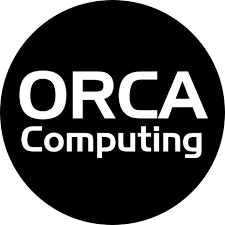
ORCA Computing, based in London and founded in 2019, is yet another of many quantum computing hardware companies TQD has covered in a piece and one that is striving to take QC into new realms of discovery and invention with its propriety platform. ORCA’s technology centres on ‘building the first scalable, modular and flexible quantum computing platform powered by photonics by leveraging photonics connectivity’.
The impressively high £2.9M raised this summer in a Pre-Seed round will have likely put enormous smiles on the founding team of Richard Murray, Cristina Escoda, Josh Nunn, and Ian Walmsley.
Visit company’s profile page.
20. PASQAL

When you’re a French QC startup with a homophone of one of the greatest French scientists and philosophers in history, it’s not by accident. Serious intentions are on the cards.
Set up in Palaiseau, Ile-de-France in 2019, PASQAL’s founder Georges-Olivier Reymond may or may not have Blaise Pascal as one of his heroes, but my guesses are he has.
With a Ph.D. from the University of Paris Sud in quantum physics, Reymond is a seasoned senior engineer in the manipulation and trapping of cold atoms, laser physics, interferometry, imaging and optical detection.
PASQAL’s quantum processors, using the magic of neutral atoms, are set to take quantum advantage to its customers. To help PASQAL in its quest the startup received an undisclosed amount in a Seed funding round in 2019 from French VC Quantonation.
Visit company’s profile page.
21. Photonic Inc

Photonic Inc is a Vancouver-based QC startup. Founded in 2016 by its chief quantum officer Stephanie Simmons, Photonic is in the designing and manufacturing of silicon-based quantum technologies.
“Photonic is set to revolutionize the world of quantum computing.”
— Photonic
To date, there is little to no information on the startup’s financial position, but it can be guessed they are still in bootstrapped mode. However, with a world-leading expert in QC technologies in Simmons and CEO Paul Terry at the helm, Photonic is in the best hands possible to move forward with their intentions.
Visit company’s profile page.
22. Qontrol Systems

Founded in Bristol, the UK in 2016 by Josh Silverstone and Liz Martin-Silverstone, Qontrol Systems manufactures analog driver electronics and infrastructure that can control complex photonic and quantum photonic devices. With everything designed and assembled on-site, the manufacturing of Qontrol Systems’ components is done across the UK and the EU.
Key to the startup’s success is the range of products it has made available, these include drivers, backplanes and accessories.
And Qontrol Systems’ financial status is healthy, too, according to its Companies House accounts history. Again, Qontrol Systems is a startup with a product, so making money — as long as their products are reliable and cost-effective — shouldn’t be a problem in the long run.
Visit company’s profile page.
23. Quandela

Quandela was founded in Palaiseau, (a suburb of Paris) France, in 2017. The startup’s founders are Niccolo Somaschi, Valerian Giesz and Pascale (Mardon) Senellart. Specializing in the fabrication of ‘unique solid-state sources of quantum light’, the team are currently researching in quantum photonics and quantum information, and see this approach to the technology as being revolutionary in quantum information science in the years to come.
A grant in 2018 and a Seed round led by French QC investment specialist Quantonation this summer, give the French startup financial stability for the midterm to see their photonic qubit emitters in the form of single-photon source leave the research lab to a minimum viable product in the early stages of QC era.
Visit company’s profile page.
24. Quanterro Labs
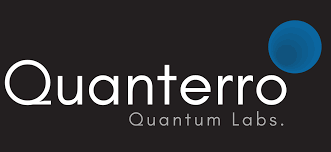
The Arabian peninsula is developing into a hub of sorts in the QC world, and with an educated workforce, good salaries at hand along with superrich patriarchs willing to fund innovation, a few startups have appeared in the area already. This is set to continue, no doubt.
Quanterro Labs, based in Khalifa City A, Abu Dhabi, is an initiative by AiFi Technologies. With expertise in single-photon based technologies, cryptography and communications systems, Quanterro Labs’ founding team of Kaisar Parvez and Ram Soorat — the region’s first privately owned quantum lab — hopes their innovation and research can improve a swathe of industries like healthcare, finance, fashion and gaming.
25. Quantum Machines

I covered this next startup in a TQD story late in 2019, entitled Quantum Machines: First QC Startup in The Holy Land.
Boy, how they have come on since then!
Itmar Sivan, Yonatan Cohen and Nissim Ofek are the founders of Quantum Machines, a QC startup on the road to developing the most state-of-the-art control and operation systems for quantum computers.
“Sparking a New Era in Quantum.”
— Quantum Machines
Only in operation since 2018, the Tel Aviv-based team has a lot to be proud of: they raised a $17.5M Series A funding round in the spring led by Avigdor Willenz, an Israeli tech entrepreneur, off the back of their innovative software, hardware & electronics systems.
Marcus Aurelius once said: “A man’s worth is no greater than the worth of his ambitions”, and Quantum Machines have obviously taken the old Roman at his word as they are currently working on quantum technologies that comprise:
— Superconducting Qubits
— Trapped Ions & Atoms
— NV Centres
— Quantum Dots
— Topological Qubits
With CEO Itmar Sivan, a solid cadre and cash in the bank, Quantum Machines can reach the next level, competing with the big guns like Rigetti et al for the QC crown jewels.
Visit company’s profile page.
26. Quantum Motion

Quantum Motion is based in Oxford and founded in 2017 by directors John Morton and Simon Benjamin. Currently, the startup is hard at work developing a scalable array of qubits based on their silicon processing technology which they have been developing at UCL and Oxford University, where the two men are research professors. Quantum Motion’s silicon-based integrated circuit technology, the startup’s team believe, ‘is the bedrock of the digital revolution’.
To achieve all this Morton and Benjamin have a king’s ransom to play with. In May of this year, they completed a series A investment round worth £8M. INKEF Capital, a Dutch-based venture capital company, led the round which also involved a handful of other investors.
Visit company’s profile page.
27. QuantumCTek
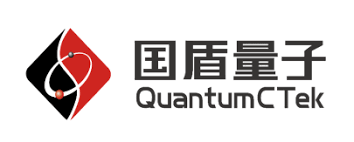
Now we come to a startup from China, QuantumCTek. Like with many things from The Middle Kingdom, there’s quite a lot of secrecy in who’s funding the startup and who’s part of the management team. From what TQD could gather, Peng Chengzhi is the chairman of the board of directors. Marketing themselves as a ‘Chinese pioneer and leader in commercialized quantum information technology (QIT)’, it wants to become a global powerhouse in the manufacture and supplier of QIT-enabled ICT security products and services.
And with backing from the CCP in Beijing, they will probably achieve it, too.
QuantumCTek has several products in its portfolio: these include polarization coding quantum key distribution terminals, QKD network cipher machines to quantum-secure encryption routers.
The startup guarantees solutions for critical infrastructure problems, cloud and data centre control, data collection, industrial and financial applications, but it is whether they can be trusted with such sensitive issues in western markets, especially with the all omnipotent hand of Xi Jinping and his party men probably with a controlling stake, that will be the key. Nobody doubts the Chinese spirit of innovation, yet trust will play a massive part in how they develop their product and market approach in the future.
Visit company’s profile page.
28. Qubitekk
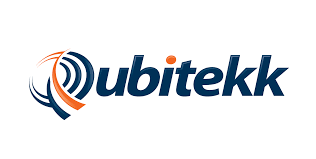
Quantum sensing and cryptography has become somewhat of a byword in the last half a decade. In my hometown of Birmingham, UK, Professor Kai Bongs’, principle investigator of the UK Quantum Technology Hub Sensors and Timing at the University of Birmingham, is developing quantum gravity sensors (gravimeters) that will be, according to modelling, twice as sensitive and ten times faster than equipment currently available.
In cryptography, too, we can read about new breakthroughs on an almost daily level. Which is cool. Which is what we want to hear. Which is the direction we need to head if this technology criticized by some is to be the next technological breakthrough we acolytes wish it to be one day.
So it’s good news that Qubitekk, a California-based QC company founded in 2012 by Duncan Earl, is doing some great work in quantum sensing and cryptography.
“The Power of Quantum”
— Qubitekk
Qubitekk has built a number of quantum devices that have been developed to ‘make powerful quantum mechanical phenomena accessible to all scientists and engineers’.
A few examples are The Bi-Photon source with integrated laser/quantum sensor development kit, the cool-sounding single-photon Qubitekkor and the Qubitekk’s Quantum Mechanics Lab Kit. Any Doc Brown’s out there with $599 in loose change? Qubitekk’s two-channel Coincidence Counter, a low-cost solution for nanosecond resolution coincidence counting, is available to purchase on the website.
To date, the company has raised $2.2M in funding, the latest a 2019 Venture round.
Visit company’s profile page.
29. SeeQC
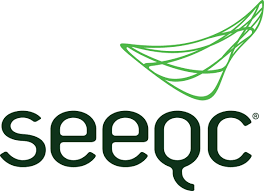
SeeQC, a spin-off from Hypres, the world’s leading developer of superconductor electronics, was founded by the three-person team of John Levy, Oleg Mukhanov and Matthew Hutchings in 2018. Promising the first digital quantum computing platform for global businesses, SeeQC sees (no pun) ‘the fundamental premise that to deliver a commercially scalable and cost-effective quantum computing solution, classical readout, control, error correction, and data processing functions must be integrated with a quantum processor’.
Based in Elmsford, NY, SeeQC’s manufactures superconductor multi-layer chips.
To date, the startup has raised an impressive $11.8M in funding. $6.8M of that in a Seed round in 2019. The other $5M came this spring in a Series A round.
Visit company’s profile page.
30. Sparrow Quantum

I covered this innovative Danish QC startup in an article in TQD last year. Founded in 2015 by Peter Lodahl, its mission is to focus on developing and commercializing photonic quantum technology using a stream of single photons.
The hardware is centred on Sparrow Qauntum’s SQ-chip, which can be used with a photonic quantum simulator, in quantum cryptography and networks along with quantum optics. The technology comes from research and patents developed at the Niels Bohr Institute Quantum Photonics Lab.
Additionally, Sparrow Quantum has several partnerships in the QC space using photonic quantum technology: these include with KETS Quantum Security, Nordic Quantum Computing Group (NGCQ), Quandela, Single Quantum, and Xanadu.
On the financial front, the startup raised an undisclosed amount in a Seed round in 2016.
Visit company’s profile page.
31. Tundra Systems Global Ltd

The last company on our list was founded by Brian Antao, a computer technologist, in Cardiff, the UK, in 2014. With founder experience going back nearly two decades, Antao’s — with a Ph.D. in electrical engineering from Vanderbilt University — skills also encompass the managerial responsibilities demanded of when building a successful startup.
“To Develop the Next Frontier of Computing Solutions in a Silicon Photonics Technology that address the limitations of semiconductors.”
— Tundra Systems Global Ltd
Antao and his team’s approach is in the area of quantum optical computing, as they see the shelf-life of classical semiconductors is coming to an end (at least reaching their performance limitations). They believe to get to exascale computing and beyond (QC) will take the ‘photonics realm of implementing Computational Systems’.
Tundra Systems Global product stack is made up of a quantum processing unit, QISA and Cross-Compiler and others while the startup wants to service most markets, including big data analytics, cybersecurity and financial stock markets.
Tundra has raised, over two rounds, some $12M in investment.
Visit company’s profile page.
If you want to find out what’s new in the Industry, check out our latest quantum news.










